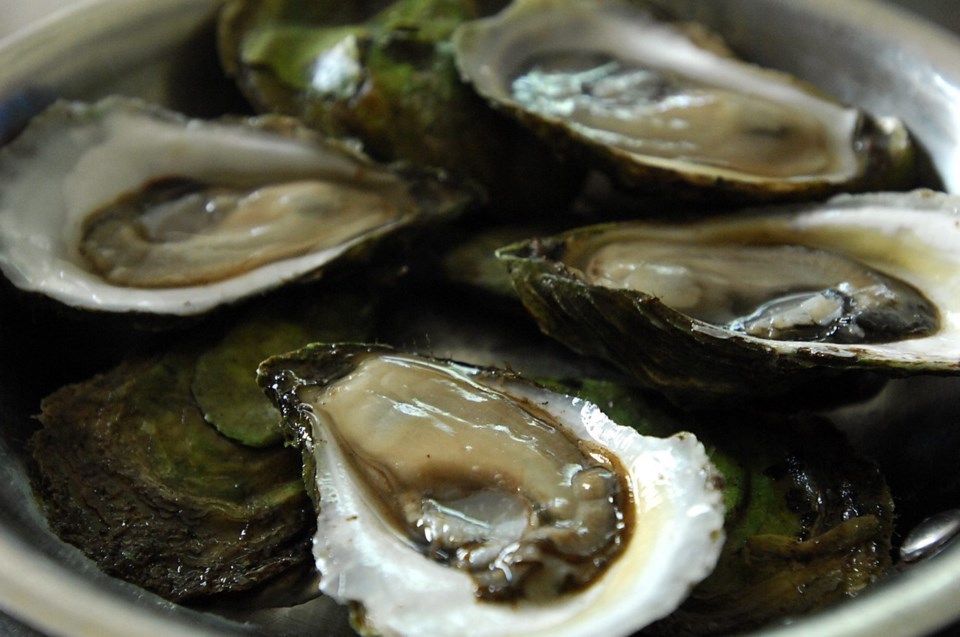VANCOUVER — Health officials in British Columbia say at least 64 people have become sick after eating raw oysters from restaurants and retail locations.
A statement from the BC Centre for Disease Control and the provincial health authority says the "norovirus-like" gastrointestinal illnesses have been reported since Nov. 1 in the Vancouver Coastal Health, Fraser Health and Island Health regions.
Federal agencies have closed some areas of the province to commercial shellfish harvesting, including parts of Baynes Sound, west of Denman Island, while the cases are being investigated.
Authorities say some people went to emergency departments with symptoms of diarrhea, vomiting, or stomach pain, but there have been no hospital admissions reported.
The statement says norovirus is common during the winter months, and can cause intense symptoms, including dehydration which can be a serious problem for older adults or those who are very young.
Norovirus spreads very easily from person to person but can also be caused by consuming contaminated food or water.
The statement says food contaminated with noroviruses may look, smell and taste normal, and that to kill the virus oysters can be cooked to an internal temperature of 90 C for 90 seconds before eating.
"Oysters can become contaminated with norovirus that may be present in the marine environment where they are grown and harvested," the statement says.
"The BC Centre for Disease Control and regional health authorities are reminding the public of risks associated with consuming raw or undercooked oysters, especially those who may be at higher risk of severe illness such as children, older adults or people who may be immunocompromised."
This report by The Canadian Press was first published Dec. 19, 2024.
The Canadian Press



